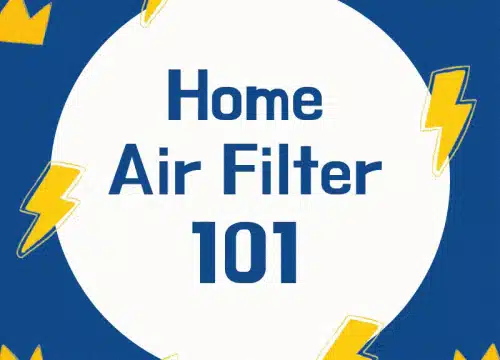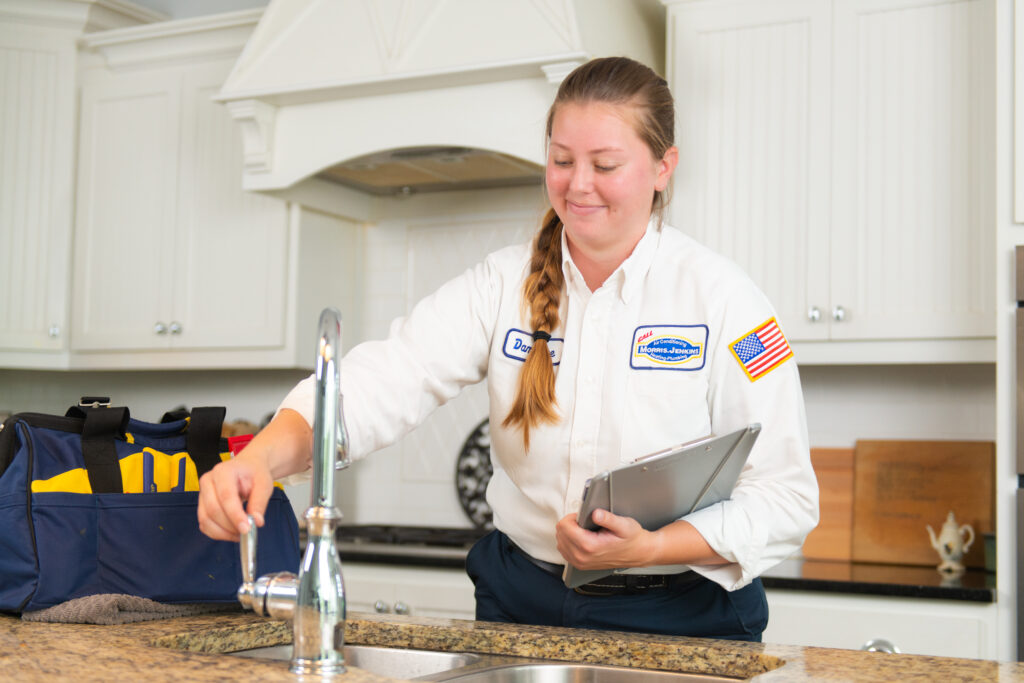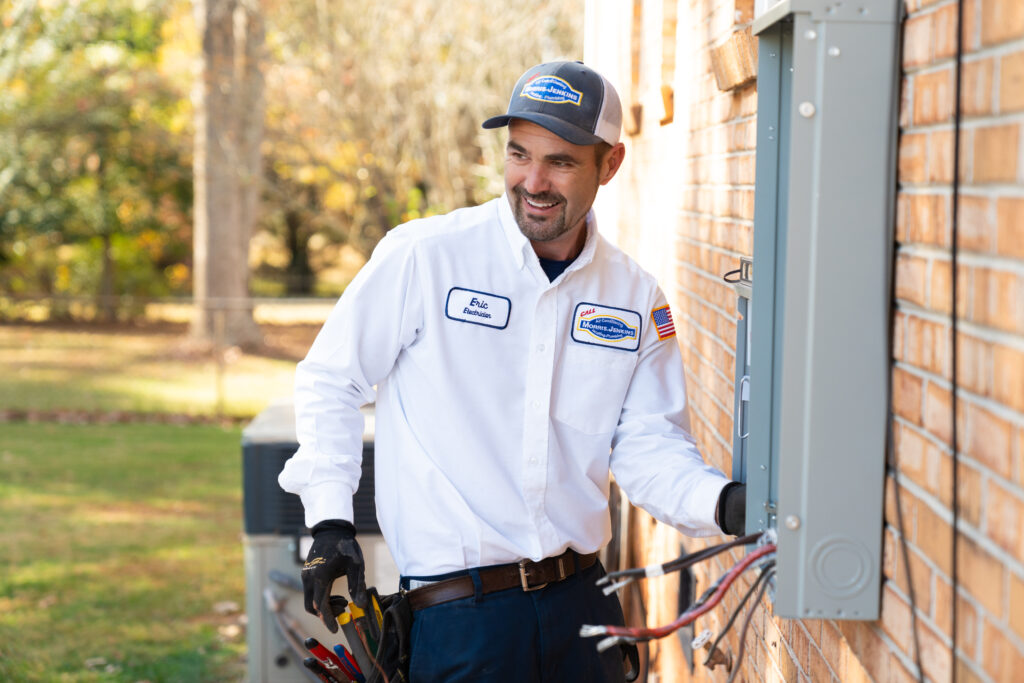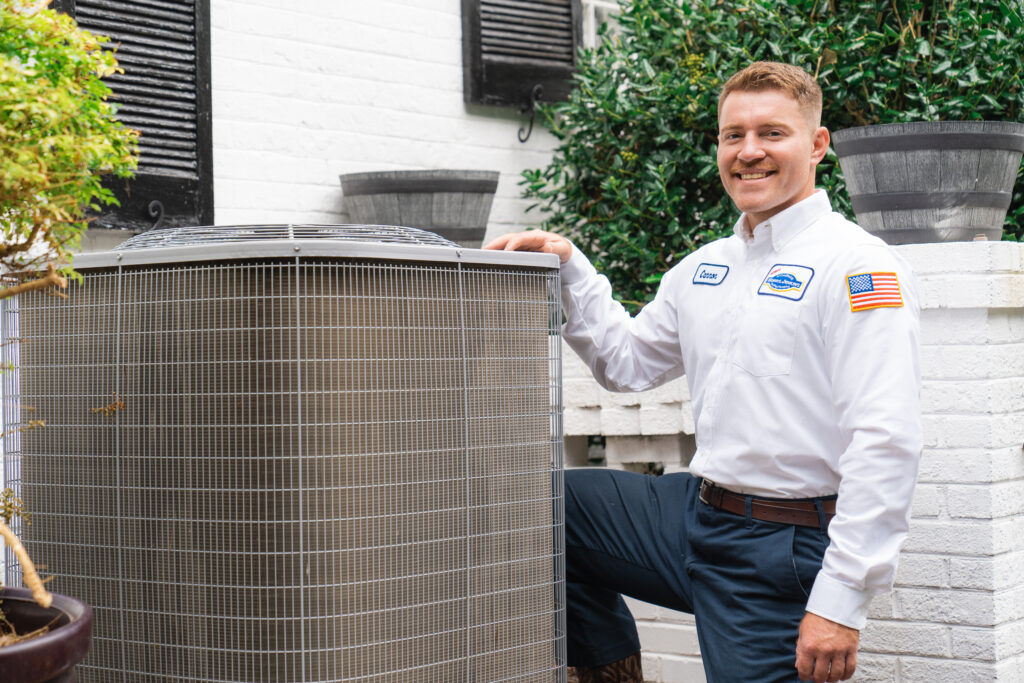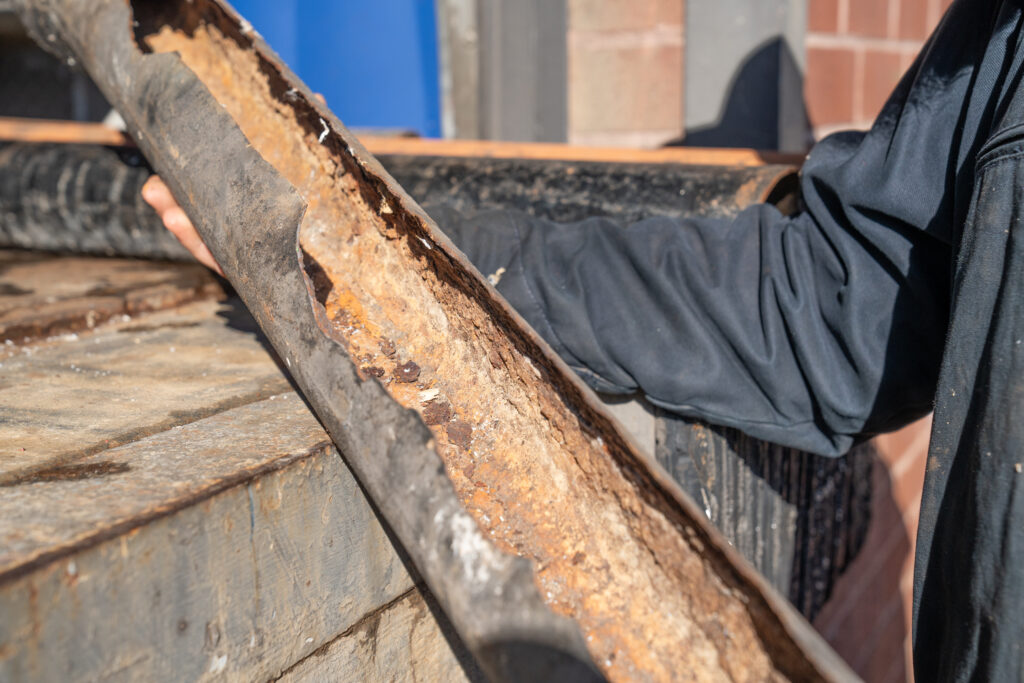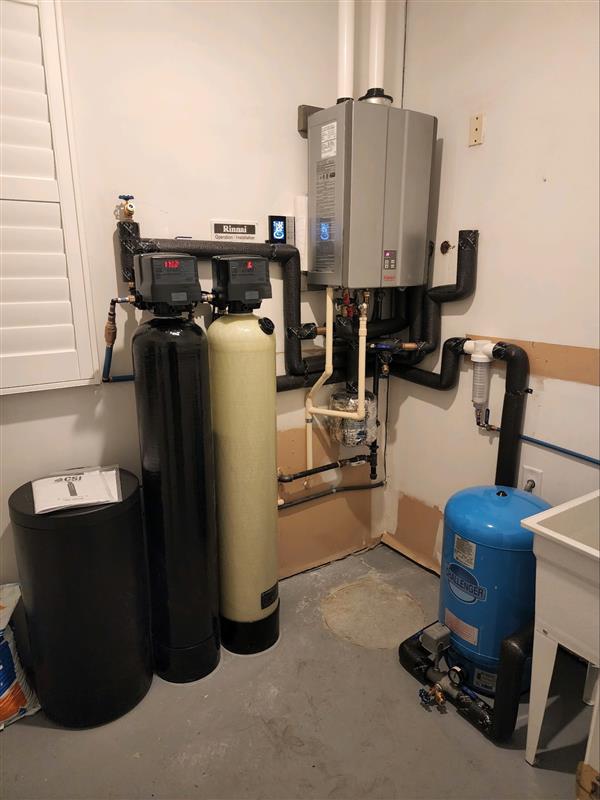Your HVAC systems have filters inside of them; not exactly groundbreaking news, huh? But what might be more surprising to learn is that they don’t just exist to keep your indoor air quality high—they’re also there to protect your HVAC system itself!
With that in mind, here are some things we think you should know about your HVAC system’s air filters.
What Do Air Filters Do, Exactly?
The name says it all; air filters filter the air. When air passes through the HVAC system, your air filters are supposed to catch airborne particles so they can be removed from the air before it’s passed through your ductwork and into your home’s living spaces.
They trap stuff like dust, pollen, pet dander, and more—basically anything you don’t want floating around in the air you breathe. This helps keep your indoor air cleaner and can also protect your HVAC system from getting clogged up with debris. A clean filter means your system doesn’t have to work as hard, which can actually help it run more efficiently and last longer. So yeah, that little filter is doing more than you might think.
How Often Should You Replace Your Filters?
This all depends on the type of filter your HVAC system is using. Here’s when you might need to replace your filters, depending on the type:
Standard HVAC Filters
For standard filters, you should change your filters every 30-60 days. Some more expensive filters say they’re good for up to three months, but by the third month, they can be taxing on your system. The longer you wait to change these disposable filters, the harder your system has to work to pull air through a clogged filter, which can lead to decreased energy efficiency and even potential damage to your HVAC system over time.
Media Filters
If you have a 5-inch media filter, however, they can last 6 months to a year, depending on your home and your lifestyle (if you have pets, children, etc.). Because they have more surface area than standard 1-inch filters, media filters can trap more particles without restricting airflow as quickly.
What Else You Should Know About Changing HVAC Filters
If your home has a lot of people or pets, try to change your filters even more frequently. If you don’t have the right type of filter, you could end up needing to change it more often.
Types of Home Air Filters
You probably know what size filter you need, but do you know what type of filter is best? You need a filter that stops dust, but still allows air to flow. It’s important to find some middle ground between filtration efficiency and airflow. The right filter can trap dust mites, pollen, VOCs (volatile organic compounds) and other particles without putting extra strain on your HVAC system.
According to one of our technicians, “Your furnace recirculates all the air in your home about seven times every hour.” That’s a lot of air! When you think about how much air your furnace has to circulate, it’s easy to see how dust can get in the way. Dust makes your unit work harder to move that much air. When your unit constantly has to work harder, it can get burnt out faster than a college kid during finals week.
You’ve got lots (and we mean lots) of buying options at your hands, and it can be tough to know what to pick. That’s why we wrote this article! You don’t have to be confused anymore—we want to make selecting a filter easy for you.
Fiberglass Mesh Filters
Traditional fiberglass filters are incredibly thin—so thin, in fact, that they almost feel like a piece of paper. They’re a popular choice because they can still trap large particles, like dirt or dust, while letting air flow through them freely.
Because they’re so thin, though, they’ll have a hard time catching pollen, pet dander, and other small particles. They’re the most cost-effective choice, though, so they’re a decent option if you just need basic filtration to protect your HVAC system.
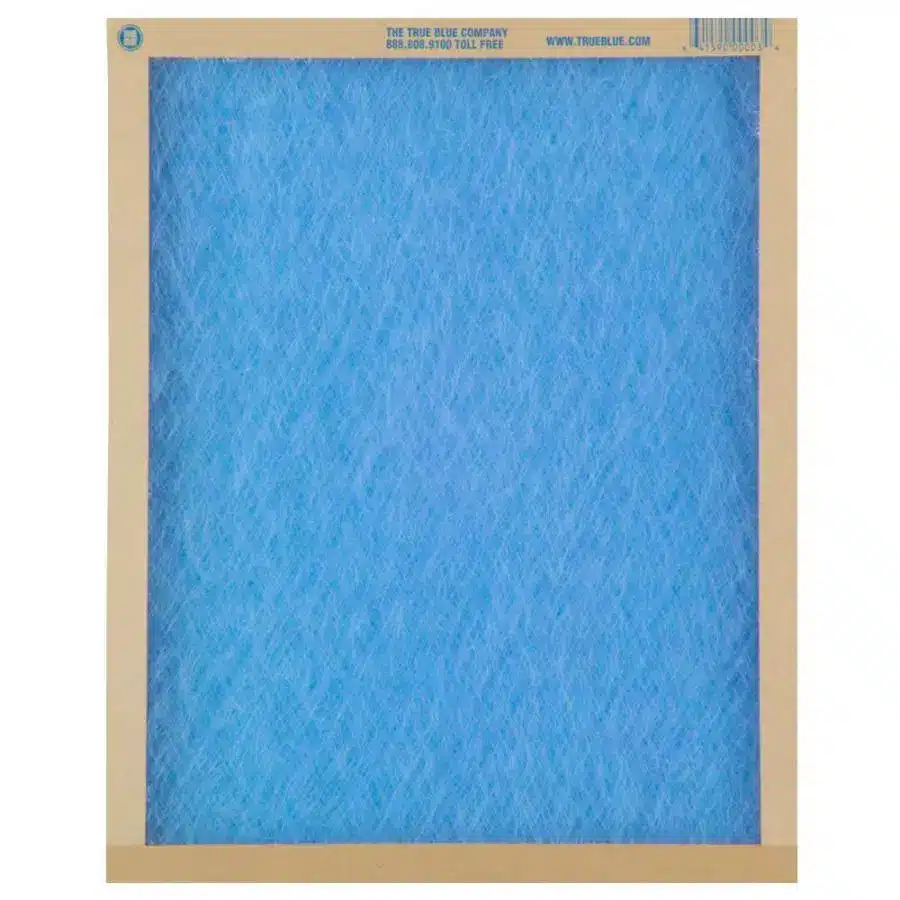
Tightly Pleated Filters
When you go to the store, you’ll notice filters are rated by something called MERV (minimum efficiency reporting value). The MERV rating refers to how tight the pleats are on the filter. A higher MERV rating means tighter pleats.
Some filters have tight pleats that make them appear thicker (less see-through). At first, this might seem like a great thing, but these filters get dirty fast, and then your unit’s going to have to work harder. It would be like you running a marathon with a sock in your mouth—you wouldn’t get much air, and you’d be working harder than ever to breathe. A MERV rating of 13 or higher is too thickly pleated. These filters protect your unit from dust, but they can cause overheating.
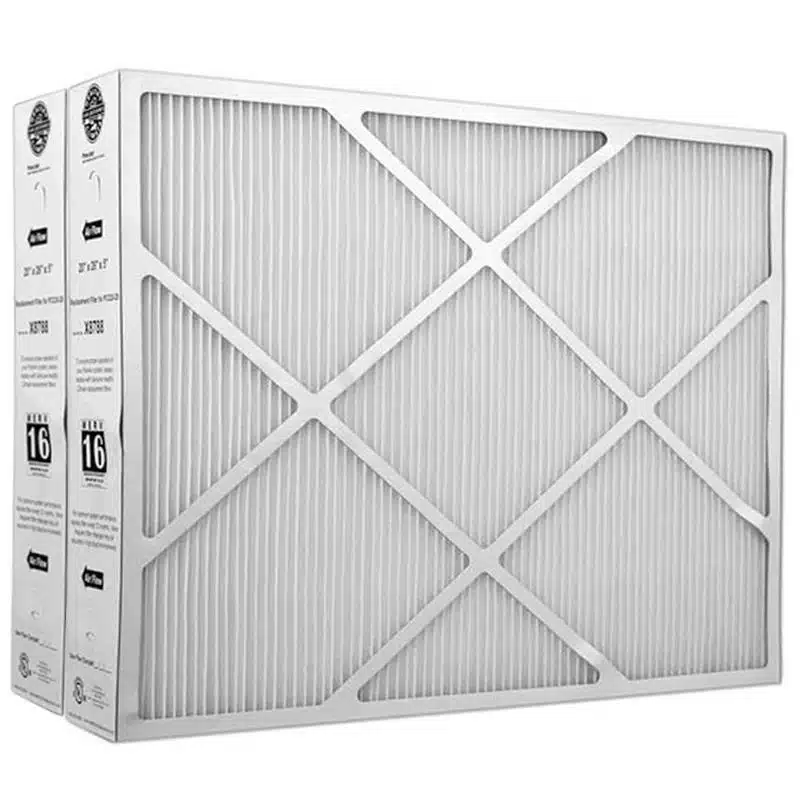
Washable Filters
In theory, a washable filter sounds like a great idea! It saves you money and it seems less wasteful. Unfortunately, most people are less likely to pull their filter out and wash it than they are to replace it with a new filter.
Even if you’re on schedule with your filter washing, it’s difficult to get the filter thoroughly clean—there’s often still debris caught in the fibers. Over time, washable filters will also begin to break down and become less effective.
Carbon Filters
There’s a new filter coming out! You’ve probably seen carbon filters used with water to filter out taste and odor for many years. Recently, people have started using special carbon-coated air filters. At first glance, these don’t seem like something you’d want your breathing air flowing through.
Typically, a clean filter is white. When you have a dirty filter, though, it’ll start to look grey and dark. Carbon-coated residential air filters start off black. Sure, they might look a little different than traditional filters, but they do an amazing job at improving the air you breathe by neutralizing unpleasant odors and harmful gases. Just keep in mind, carbon filters usually need to be replaced more frequently, since the carbon material becomes saturated over time.
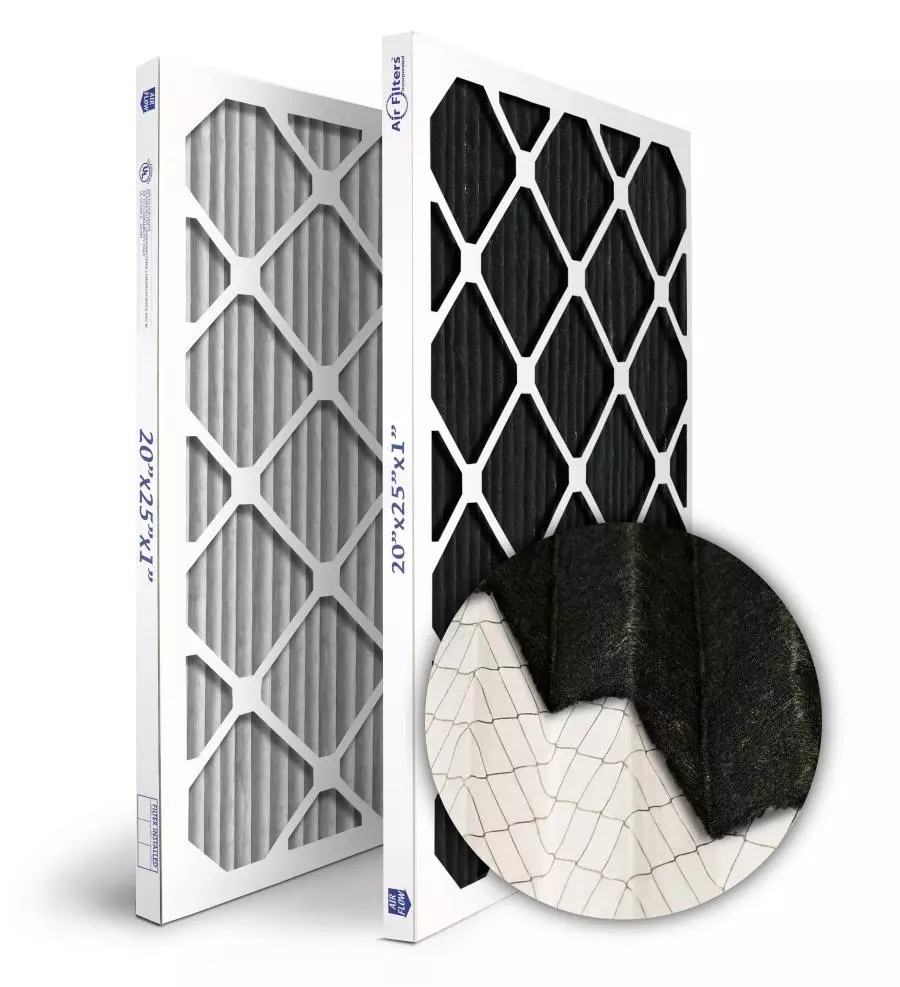
The Solution
If fiberglass mesh filters don’t catch enough dirt, but thick pleated filters don’t allow enough air through, what option is there that takes care of your unit and your family?
Pleated filters are the best option for your unit, but not the tighter pleats. Filters use a form of measurement called a MERV rating. The higher the MERV rating, the tighter the pleats. A MERV 13 would be too high. MERV 6 would be too low. Something like a MERV 8 (wide pleats) would be, in the wise words of Goldilocks, “just right.”
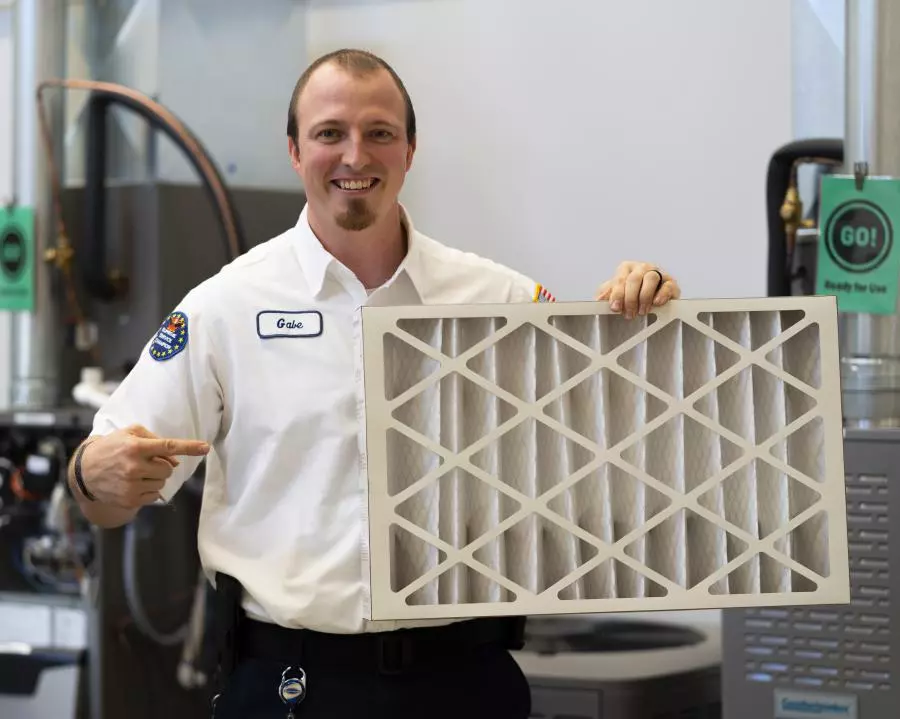
Mistakes to Avoid
Installing a Pre-Filter
Don’t install a “pre-filter.” Some people have a filter at their furnace itself instead of at the grill/vent. If this is the case, you don’t need an additional filter at the grill/vent. This would stop the flow of air too much.
You don’t need to buy material to place in front of your filters to act as another form of a “pre-filter.” Remember when we said your unit needs proper airflow? Sure, that pre-filter material stops more dirt and debris from entering your unit, but it also stops air from entering. In order to keep that proper balance of stopping dust and allowing airflow, it’s best to stick with just the simple wide-pleated filters. You also don’t need to put any kind of filter or material over your floor vents/registers because this can also restrict your airflow, overheating your furnace and damaging your system.
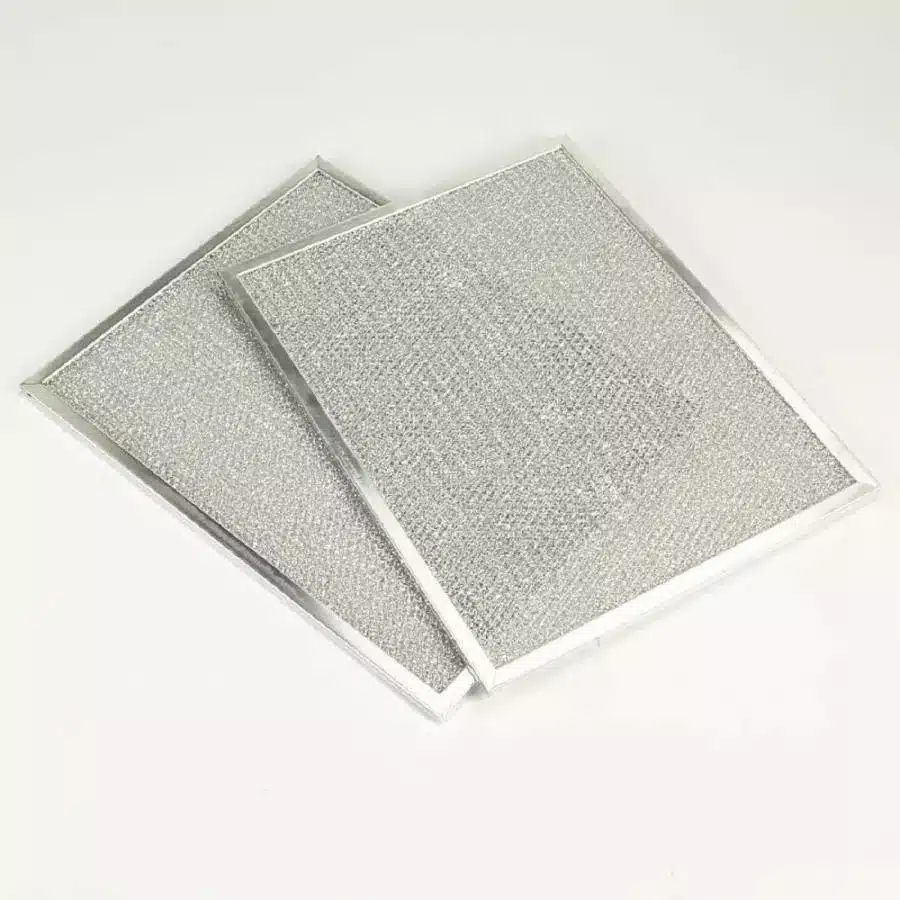
Obstructing Your Intake Vent With Furniture
We know the vents may not be pretty or in the best place for the look of your room, but we don’t recommend putting couches, bookshelves, or other large furniture items up against your air intake. This is another common way that people accidentally restrict the airflow of their unit. If you truly want to put furniture up against the air intake, we recommend leaving a few inches of space between the intake and the furniture.
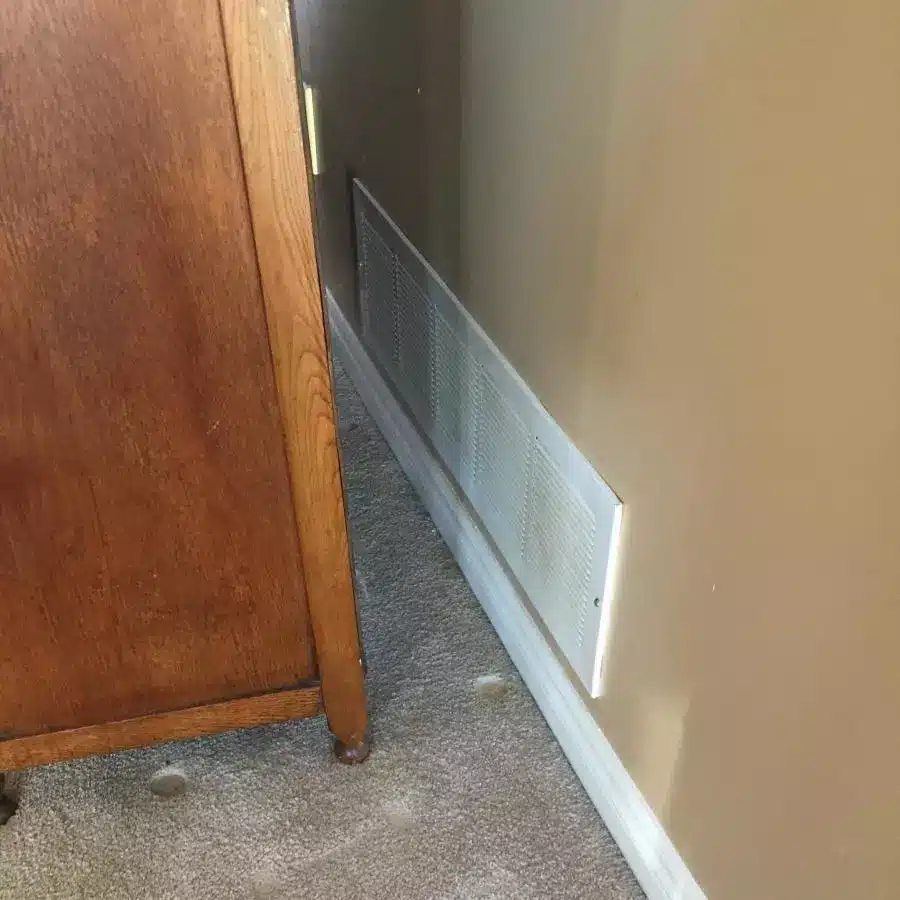
Waiting Too Long to Change a Dirty Air Filter
When your air filter becomes full of all those things it’s been collecting, it can’t do its job right anymore. Instead of trapping dust, pollen, and other particles, it can actually start to let them slip through—or worse, redistribute them back into your home’s air. A clogged filter also restricts airflow, which can make your HVAC system work harder than it needs to, causing higher energy bills and taking money out of your pockets!
Neglecting Allergy Protection
A lot of people have bad allergies. If a wide-pleated filter doesn’t feel like enough protection for your family, you’d love to hear about air treatment systems. Ask your tech about 5-inch media filters! They’re changed less often than standard filters, but they do a great job keeping your air clean. They also pair well with air ionizers.
An air ionizer can help treat the air in your home, killing common airborne allergens and growth in the air and even stopping the spread of viruses. Ask your technician about this option if you want to purify the air in your home!
Air Filter FAQs
What size air filter do I need for my HVAC system?
The size of your air filter depends on the specs of your HVAC system. Most filters have the dimensions printed on the side (like 16x20x1), but if you’re unsure or can’t find the markings, check your system’s manual or ask your HVAC technician to confirm the correct size.
Can air filters help with weird smells in my house?
Some filters can! While standard filters are mainly for dust and particles, activated carbon filters are designed to reduce odors from pets, cooking, smoke, or even mildew. They’re a great add-on if you’re trying to improve not just the cleanliness, but also the freshness of your air.
Do air filters help with viruses or bacteria?
Basic filters don’t do much against microscopic things like viruses. However, higher-grade filters (like HEPA or filters paired with air purifiers or ionizers) can reduce airborne pathogens. If you’re concerned about germs, talk to a pro about upgrading your filtration or adding a whole-home air treatment system.
Why is there a whistle or noise coming from my filter area?
If you hear a whistling or whooshing sound, it could mean your filter is too restrictive or not seated properly. A dirty filter, or one with too high of a MERV rating, can cause airflow resistance, which creates noise. Double-check that your filter is the right type and size—and that it’s installed correctly.
Do both furnaces and central air conditioners use filters?
Yep! Both heating and air conditioning systems use filters to keep airborne pollutants out of your home’s air supply and to protect your indoor air quality.
Schedule HVAC Services in Charlotte With Morris-Jenkins: We Make It Easy
When you schedule maintenance with Morris-Jenkins, ask your tech about replacement filters! We believe that you deserve to breathe clean air all year round, and changing your air filters on time is one of the best ways to do so!
If you already have some air filters or would like to purchase replacements, your tech can install them for you while working in your home. We make filter replacements easy! Even though your filter is meant to protect your unit, it still affects the air you breathe. The better the filter, the better the air for your unit and your family. Whether it’s a central air system or furnace filter, we’ll help you choose the best one for your HVAC system!
